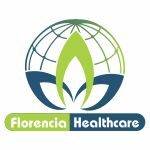The global demand for anticancer drugs is increasing at an unprecedented rate. With the rising prevalence of cancer worldwide, access to effective and affordable oncology treatments has become a priority for many countries. As a leading player in the pharmaceutical industry, Florencia Healthcare is at the forefront of manufacturing and exporting high-quality anticancer drugs to meet this demand.
This article explores how anticancer drug manufacturers cater to the global market, the challenges they face, and how Florencia Healthcare ensures seamless exports to international markets.
The Growing Demand for Anticancer Drugs
Rising Cancer Incidences Worldwide
Cancer is one of the leading causes of death globally. According to the World Health Organization (WHO), an estimated 10 million people die from cancer each year. This alarming statistic has led to increased efforts in research, development, and production of oncology drugs.
Expansion of Pharmaceutical Exports
Many countries, especially in developing regions, rely on pharmaceutical exports to obtain affordable anticancer treatments. Indian pharmaceutical manufacturers, including Florencia Healthcare, play a critical role in supplying cost-effective cancer medications to markets in Africa, Latin America, the Middle East, and Southeast Asia.
How Manufacturers Meet the Global Demand for Anticancer Drugs
1. Stringent Quality Assurance & Compliance
Ensuring the highest quality standards is the cornerstone of anticancer drug manufacturing. Companies like Florencia Healthcare comply with global regulatory frameworks, including:
- WHO-GMP (Good Manufacturing Practices)
- USFDA (United States Food and Drug Administration)
- EMA (European Medicines Agency)
- TGA (Therapeutic Goods Administration, Australia)
2. Advanced Manufacturing Capabilities
Modern anticancer drug production relies on cutting-edge technology and research-backed formulations. Florencia Healthcare operates state-of-the-art WHO-GMP-certified manufacturing plants equipped with:
- High-precision formulation processes
- Sterile injectable production lines
- Stringent quality control measures
3. Affordable and Accessible Oncology Medicines
One of the biggest challenges in global healthcare is the affordability of cancer treatments. Florencia Healthcare provides cost-effective generic alternatives to expensive branded oncology drugs, ensuring wider accessibility.
4. Strategic Global Distribution & Logistics
To efficiently meet international demand, Florencia Healthcare has a robust export network covering key global regions. The company ensures:
- Regulatory approvals for each target market
- Efficient cold chain logistics for temperature-sensitive drugs
- Partnering with international distributors to enhance accessibility
5. Research & Development Innovations
Investing in R&D is crucial for the development of new and improved cancer treatments. Florencia Healthcare prioritizes innovation in:
- Targeted therapy drugs
- Biosimilars and monoclonal antibodies
- Personalized cancer treatments
Challenges in the Anticancer Drug Export Market
1. Regulatory Hurdles
Each country has distinct regulatory requirements, which can delay the approval process. Manufacturers must adapt to varying regulations to ensure smooth market entry.
2. Supply Chain Disruptions
Global crises such as the COVID-19 pandemic have highlighted vulnerabilities in supply chains. Manufacturers must implement contingency plans to mitigate disruptions.
3. Price Wars & Market Competition
Pharmaceutical companies must maintain competitive pricing while ensuring profitability. Strategic partnerships and bulk production help manage costs effectively.
4. Counterfeit Drugs & Product Integrity
Counterfeit anticancer drugs pose a major threat to patient safety. Florencia Healthcare combats this by implementing strict quality checks and serialization measures to track authentic products.
The Future of Anticancer Drug Exports
1. Expansion into Emerging Markets
Developing nations present new opportunities for anticancer drug exports. Companies must navigate trade agreements and healthcare infrastructure challenges to expand their reach.
2. Advancements in Biotechnology
The shift towards biotech-driven cancer therapies such as gene therapy and CAR-T cell therapy is expected to redefine the pharmaceutical landscape.
3. Sustainability in Drug Manufacturing
Pharmaceutical companies are increasingly focusing on eco-friendly production processes and green chemistry to minimize environmental impact.
Conclusion
As global demand for anticancer drugs continues to rise, Florencia Healthcare remains committed to delivering high-quality, affordable oncology treatments worldwide. By maintaining regulatory compliance, investing in innovation, and optimizing distribution networks, the company is shaping the future of cancer care on a global scale.
For more information on Florencia Healthcare’s anticancer drug exports, contact us today!
FAQs: Anticancer Drug Export by Florencia Healthcare
1. Which countries does Florencia Healthcare export anticancer drugs to?
Florencia Healthcare exports oncology medicines to multiple regions, including Africa, Southeast Asia, Latin America, and the Middle East.
2. What types of anticancer drugs does Florencia Healthcare manufacture?
The company produces a wide range of chemotherapy drugs, targeted therapies, immunotherapy agents, and biosimilars.
3. How does Florencia Healthcare ensure the quality of its exported anticancer drugs?
All drugs undergo rigorous GMP-compliant quality control measures, including sterility testing, bioequivalence studies, and regulatory approvals before export.
4. Are Florencia Healthcare’s anticancer drugs affordable?
Yes. The company provides cost-effective generic alternatives to expensive branded drugs, making cancer treatment more accessible globally.
5. How does Florencia Healthcare handle international shipping and logistics?
The company collaborates with trusted global logistics partners and ensures proper regulatory compliance for smooth drug delivery worldwide.
6. Does Florencia Healthcare develop biosimilars for cancer treatment?
Yes. The company invests in R&D for biosimilar drugs, providing high-quality, affordable alternatives to biologic cancer therapies.
7. What are the major challenges in exporting anticancer drugs?
The key challenges include regulatory complexities, supply chain disruptions, pricing pressures, and counterfeit drug threats.
8. How does Florencia Healthcare contribute to global cancer treatment?
The company ensures high-quality manufacturing, affordable pricing, and efficient distribution to help cancer patients worldwide receive timely treatment.
9. What regulatory certifications does Florencia Healthcare hold?
The company is certified by WHO-GMP, USFDA, EMA, and TGA, ensuring compliance with international pharmaceutical standards.
10. How does Florencia Healthcare maintain sustainability in manufacturing?
The company integrates green chemistry principles, waste reduction strategies, and energy-efficient production methods to promote sustainability.

